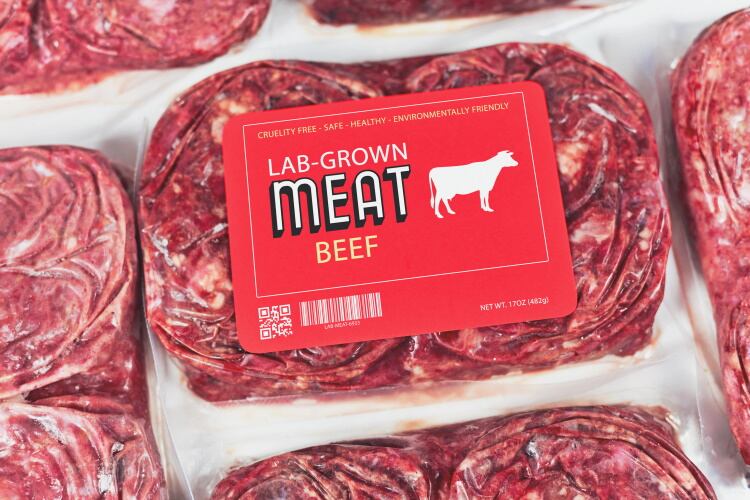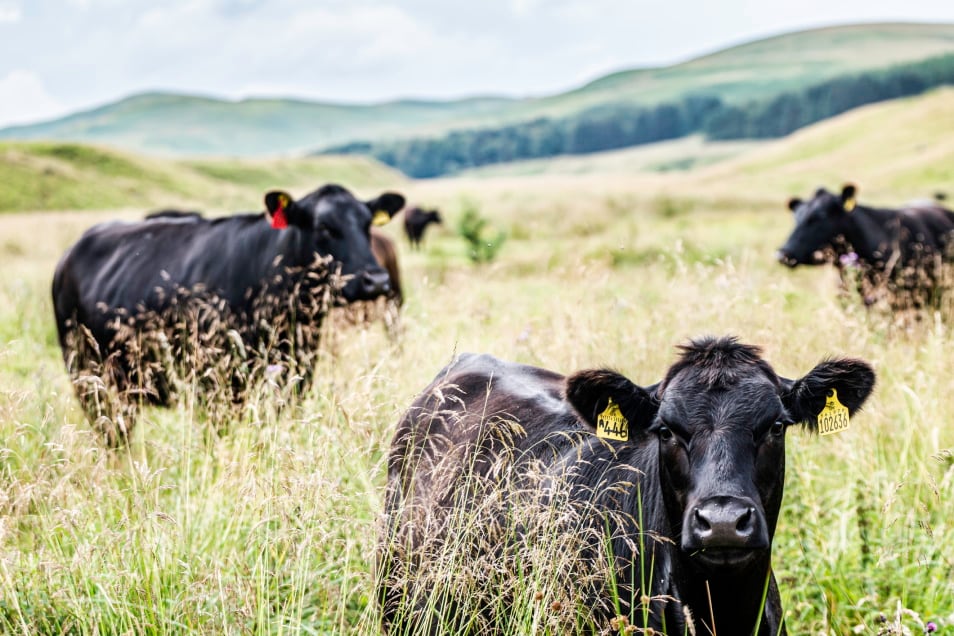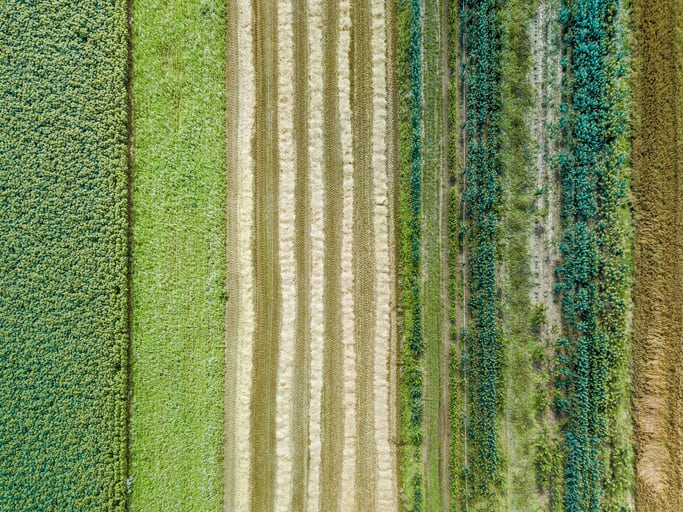The way animal proteins are produced and consumed today has a significant impact on the health of the planet. Livestock raised for meat, eggs and dairy generate 14.5% of greenhouse gas emissions, according to FAO figures. Animal agriculture also uses around 70% of agricultural land and the sector is linked to problems like biodiversity loss, water pollution and deforestation.
“In Europe and the Global North, current levels of meat production are unsustainable – driving climate breakdown, ecosystem destruction, public health crises and global injustice,” Alex Holst, Senior Policy Manager at the Good Food Institute Europe, told FoodNavigator.
The GFI is a non-profit that promotes plant- and cell-based alternatives to animal agriculture. Founded in 2016, the organisation believes that challenging the dominance of conventionally produced animal proteins is critical to delivering a transition towards sustainable protein consumption. This assessment is one that is gaining traction.
Indeed, while the latest Intergovernmental Panel on Climate Change (IPCC) report on climate change supported a diverse food system that includes animal production, it also placed lifestyle changes that would see a shift towards ‘sustainable diets’ that are lower in animal proteins firmly on the agenda. It suggested this switch could result in a 30-70% GHG reduction by 2050 while also improving health and wellbeing.
"Reduction of excess meat consumption is amongst the most effective measures to mitigate GHG emissions, with a high potential for environment, health, food security, biodiversity, and animal welfare co-benefits,” the report stated.
As GFI’s Holst recognised: “This week’s IPCC report highlighted that food system emissions alone threaten the world’s climate targets, and recognised the potential of plant-based and cultivated meat to deliver reductions in greenhouse gas emissions, pollution, and land, water and pesticide use.”
Scientists at IPES-Food agree that the current system of intensive animal agriculture is not sustainable. However, in a comprehensive review of studies on meat and protein published today, they take issue with the idea that we should be switching out our steak or chicken breast for ‘fake meat’ that, they suggested, is not always as sustainable as its advocates claim.
‘Fake meat will not save the planet’
IPES-Food warned that there are risks associated with swapping consumption to cultured meats and plant-based substitutes that promise to reduce the devastating impact of protein production on climate.
These technologies, the report argued, only appear to be viable thanks to ‘relentless marketing, misleading claims about a global protein shortage, and ignoring key aspects of sustainability such as biodiversity and livelihoods’.
“It’s easy to see why people would be drawn to the marketing and hype - but fake meat will not save the planet. In many cases, switching to fake meat will make the problems with our industrial food system worse - fossil fuel dependence, industrial monocultures, pollution, poor work conditions, unhealthy diets, and control by massive corporations,” summarised lead author Philip Howard, member of IPES-Food and Professor of Community Sustainability at Michigan State University.
Adopting alternative proteins as a plug-and-play solution to address the unsustainable nature of animal protein production could mean we fail to tackle the fundamental issues that currently stand in the way of a transition towards a food system that is healthy for people and planet, Howard told FoodNavigator.
“These pathways do not address the changes that are needed to move away from monocultural, industrial, chemical- and fuel-intensive agriculture, and will continue to rely on these types of systems for inputs. This approach may also be very problematic for shifting dietary patterns in the needed directions.”
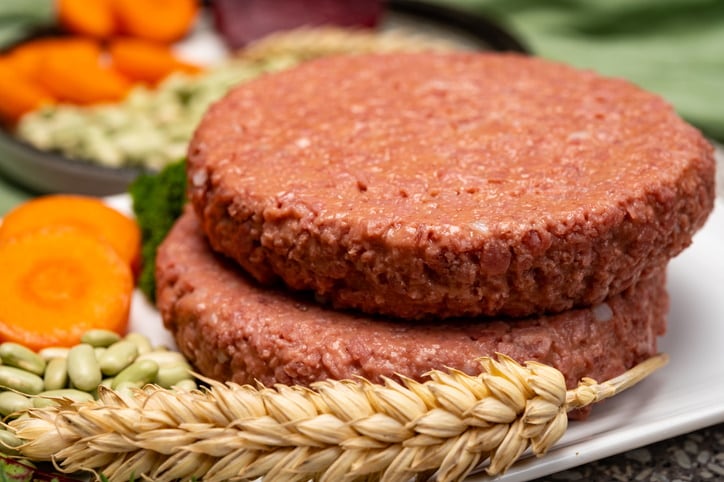
He also suggested that by focusing on mimicking the organoleptic profile of meat, alternative proteins reinforce our current approach to centre plate protein consumption and diets that are high in ultra-processed foods. “By attempting to replicate the taste and texture of meat, fake meats tend to reinforce a centre of the plate diet, and therefore steer people away from more diverse and less processed diets. In fact, increasing sales of these alternatives are not reducing the sales of meat in most markets,” he noted.
Overblown environmental claims?
Alternative proteins promise to reduced the damage our diets are wreaking to the climate. However, the evidence for these claims is ‘limited and speculative’, the expert panel concluded. The IPES-Food report worries that new tech solutions like cultured meat tend to underplay their negative environmental impact.
“The energy requirements of lab meat are a major concern,” Howard told us, pointing to a 2019 study from the LEAP (Livestock, Environment and People) programme at the Oxford Martin School.
The LEAP research, published in Frontiers in Sustainable Food Systems, found replacing cattle with cultured meat may not be a simple swap of high-impact with low-impact. Over the long term, cultured meat production methods requiring ‘large energy inputs’ could increase global warming more than some types of cattle farming if energy systems remain dependent on fossil fuels, the study warned.
“Many articles highlight the potential for substituting cattle beef with cultured meat to provide an important climate benefit,” observed lead author Dr John Lynch. “It is not yet clear whether this is the case, partly because of uncertainties about how cultured meat would be produced at scale. An important issue in comparing farmed and cultured beef is that the different warming impacts of greenhouse gases are also not well accounted for in the standard measure used in carbon footprints.”
And this is just one of ‘many unknowns’, IPES-Food’s Howard continued. For instance, some of the research touting the benefits of lab grown meat used environmentally-friendly cyanobacteria as the growth medium. “That was misleading, given that all manufacturers appear to be using foetal bovine serum, which has a higher footprint. There are some genuine research gaps when it comes to lab-grown meat, but there is also plenty of speculation and hype.”
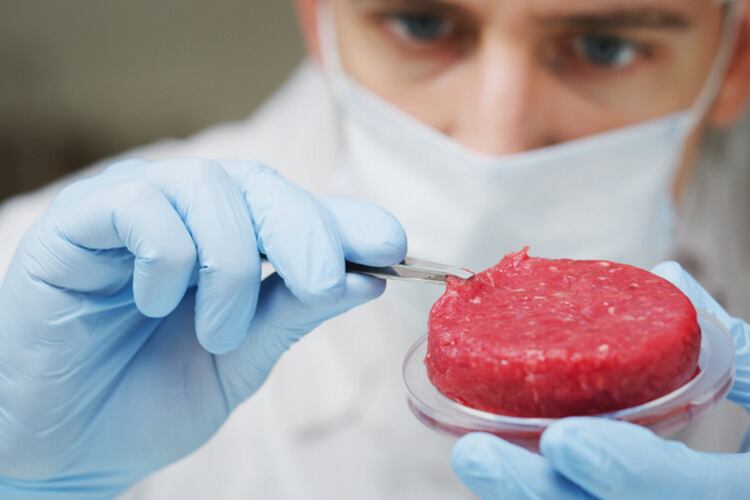
The GFI disagrees with this conclusion, insisting that there is mounting evidence to support the assertion that lab-grown meat has a lower footprint than conventional animal agriculture.
The organisation guided FoodNavigator to an independent lifecycle assessment of cultivated meat it commissioned from CE Delft last year. The study was the first to be based on data from cultivated meat companies. It found that using renewable energy to cultivate meat from cells could cut the climate impact by up to 92%, reduce air pollution by up to 93%, and use up to 95% less land and 78% less water, compared with farming animals.
These reductions are compared to an 'ambitious scenario' for conventional animal agriculture in 2030 – where farmers manage to cut the carbon footprint of meat by 15% for beef, 26% for pork and 53% for chicken. Looking at current average environmental impacts, the benefits of cultivated meat are ‘even greater’, GFI stressed, adding that freed-up land could be used for rewilding or carbon sequestration. “Even when conventional energy is used in the production process, cultivated meat was found to have a significantly lower environmental impact than beef,” GFI told us.
But Howard remains unconvinced. “We still don’t know what fully-functioning, market-ready lab-grown meat production really looks like. What we do know is that the big meat and dairy firms moving into this sector have been happy to cut corners and ‘externalize’ costs in the past.”
Big food’s power play
For Howard, the social and economic implications of a transition towards tech solutions like lab grown meat and plant-based analogues also need to be considered.
The IPES-Food report noted that the alternative protein sector has witnessed an influx of investment, with high-profile backers including Bill Gates, Sergey Brin, and Richard Branson. It has also attracted support from US, Chinese and European governments. But, if you follow the money, you find that the market has seen significant investments and acquisitions from the world’s big meat processing companies, including JBS, Cargill, and Tyson.
The alternative protein market is now characterised by 'giant companies' who combine both industrial meat production and a growing number of alternatives - creating 'protein monopolies', IPES-Food experts stressed.
In this context, Howard told us it is ‘particularly misleading’ to characterise the alt. protein sector as ‘a way to challenge corporate power and disrupt food systems’.
“In reality, this is a sector where patents are being filed, barriers to entry are emerging, and manufacturers are being snapped up by large meat and dairy firms,” he stressed.

This trend stands as evidence that big food and vested interests are taking financial control of food production at the expense of more vulnerable populations, the MSU professor believes. “Big food firms have undermined smaller scale producers in their efforts to further increase their power. It's not at all surprising that giant meat processors are buying up initiatives that could be considered alternatives to their products, including organic meat, grass-fed meat, plant-based meat substitutes, farm-raised salmon and lab-grown meat, as well as obscuring the ownership of these subsidiaries.
“These firms are not only concentrating their power in these efforts, but also successfully convincing governments to subsidize them as well. We need food systems to be less centralized and less vulnerable to disruption, and therefore should not facilitate the growth of large firms and even more chokepoints.”
An ‘excess’ of protein production globally
When we are told we will need to find new protein sources to feed the growing global population within planetary boundaries, this statement is based on the presupposition that more protein is needed to achieve the desired outcome. But although some populations in the Global South face a protein deficit in their diets, this is not due to a worldwide shortage of protein production, the IPES-Food report stressed.
“People say more protein is needed to stop people going hungry, as an excuse to leap on techno-fixes like fake meat - but the reality is there’s an excess of protein production globally, these techno-fixes have nothing to offer malnourished people, and hunger must be addressed by improving access to diverse diets for people in poverty,” argued Olivier De Schutter, co-chair of IPES-Food, and UN Special Rapporteur on Extreme Poverty and Human Rights.
A focus on alternative proteins and cultivated meats risks undermining the livelihoods of livestock farmers in the Global South for the enrichment of the large corporations and investors, the report warned.
“The oversimplified hype about meat completely overlooks the experience of people in the Global South for whom meat and fish are a sustainable source of nutrients and livelihoods,” De Schutter stressed. “It’s time to turn down the protein hype and turn up the focus on democratic, sustainable food systems rooted in regions and territories.”
According to Howard, the distinct experiences of those in the Global South and North make a one-size-fits-all solution illusive. Even proponents of a so-called ‘less but better’ approach to meat consumption miss the mark when looking at conditions in the global South, he noted.
“‘Less but better’ makes sense in wealthy regions like Europe or North America, where current production and consumption of animal source foods is simply too high. But it is problematic as a global prescription, and is out of sync with the realities of food insecurity in many parts of the global South. In some contexts, adding meat to poor, monotonous diets might be the best way to increase people’s access to protein and crucial micronutrients,” he suggested.
GFI’s Holst conceded that it’s true that populations in Europe and North America don’t need more protein in their diets. Nevertheless, she stressed, meat production is projected to increase by 14% by 2029. “Efforts to reverse that trend are welcome, but there are no signs that global demand for meat will fall in time to prevent the existing system of meat production from causing irreversible harm.” It is here that alt proteins can step up and plug the gap while minimising environmental impact, she suggested.
If not alternative proteins, then what?
If IPES-Food is cynical about the role ‘techno fixes’ can play in rebalancing the food system, what is the solution? Some, like the Rodale Institute, believe that a rejection of intensive animal agriculture in favour of regenerative practices and a ‘less but better’ approach to meat and dairy is part of the solution.
In a recent white paper, Rodale Institute suggested that a global switch to regenerative crop and pasture systems could drawdown more than 100% of annual CO2 emissions.
Dr Andrew Smith, Chief Operating Officer and Chief Scientist of Rodale Institute, elaborated: “A vast amount of data on the carbon sequestration potential of agricultural soils has been published, including from Rodale Institute, and recent findings are starting to reinforce the benefits of regenerative agricultural practices in the fight against the climate crisis.”
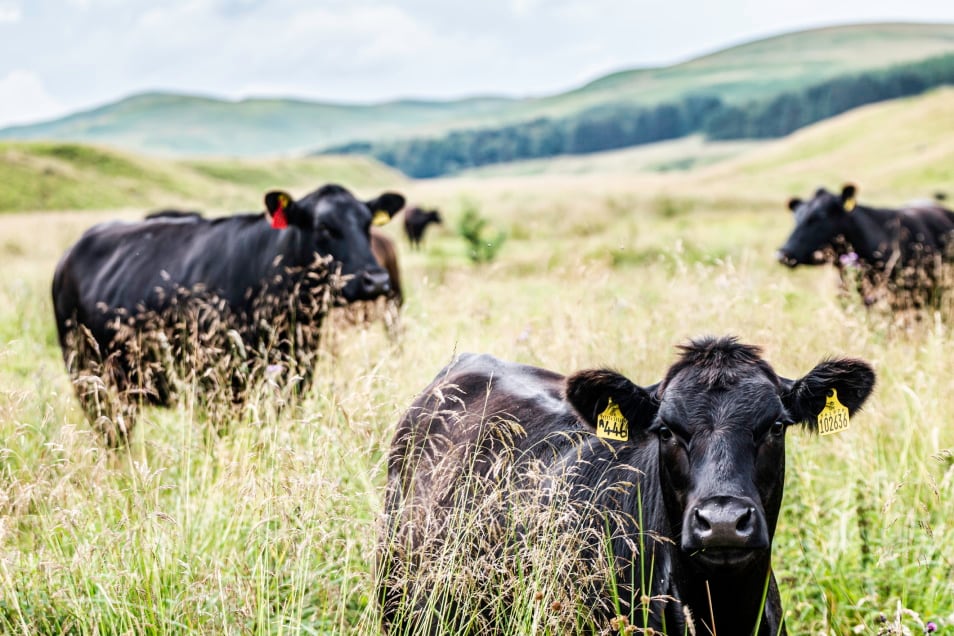
But while there is a place for achieving ‘better’ meat production and consumption, Howard worries that the environmental benefits touted by regenerative practices, which include mixed ag and rotational grazing, could also be overstated.
“Regenerative practices including rotational grazing do have advantages over systems that confine animals indoors, concentrate their waste products, and rely on feed that is shipped vast distances. Some of the claims made for the carbon sequestration potential of regenerative practices, however, are overstated. They also direct conversations away from addressing equally pressing social inequalities, often with the promise of a silver bullet ‘management fix’ for all sustainability problems."
In the absence of a catch-all solution, Howard said a deeper food system transformation is required. “It is problematic to view the changes needed as a reductionist ‘protein transition’ when what we need is holistic food systems transitions and sustainable food policies.”
GFI’s Holst agrees that there isn’t a magic fix for the systemic problems build into how we produce food. “This report is right to raise the need for a more nuanced debate on the future of the global food system – and to recognise that industrial animal agriculture is unsustainable,” she responded.
However, GFI is steadfast in its belief that ‘fake meat’, as Howard calls it, can indeed be part of the solution. “It is absolutely right that there are no silver bullets when it comes to building a more sustainable, secure and just food system,” Holst explained. “We see plant-based foods, cultivated meat, agroecology and other moves away from industrial animal agriculture as complementary approaches. Each has a role to play in creating better food systems for different communities – for example, plant-based and cultivated meat can feed large populations with less land, creating space for more sustainable farming practices.”

